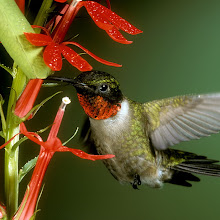
But that may soon change. While the happy-go-lucky image of Thailand may be hard for many to shake, political observers -- and the government -- are beginning to take the possibility of a civil war much more seriously.
On April 21, Jakrapob Penkair -- a key leader of the opposition United Front for Democracy against Dictatorship (UDD) and reputedly the man behind this month's violent protests in Bangkok and Pattaya -- announced in a BBC interview that the struggle was not over.
The UDD, Jakrapob said, would begin using different tactics, possibly even armed attacks. "I believe the room for unarmed and non-violent means to resolve Thailand's problem is getting smaller every day," he told the BBC.
He went on to call for new general elections to allow a democratically elected government to take power. Jakrapob was previously a spokesman for Thaksin Shinawatra, the former prime minister ousted in a 2006 coup and currently in exile.
He was subsequently a minister in the People's Power Party government, until he was forced to resign in May 2008, due to charges of lèse majesté for giving a talk critical of the country's monarchy at the Foreign Correspondents Club of Thailand.
Rather than turn himself in to the government, as many other UDD leaders did after the protests were crushed on April 13, Jakrapob fled to an undisclosed location abroad. Thaksin, the nominal leader of the UDD, has given no clear indication that he supports an armed insurgency.
Much was made of his call for a "people's revolution" in early April, but some analysts say the statement was taken out of context. Thaksin, they say, was calling for more of a Philippines-style "People's Power" movement than an armed revolt.
Nevertheless, several opposition Puea Thai Party members have made public comments about moving "underground" and using "covert action." The current government does not want either.
After forcing the demonstrators off the streets of Bangkok, security forces moved quickly to dismantle the UDD's network, both in the capitol and in the provinces. Provincial leaders were arrested, and local radio and television stations linked to the UDD movement were shut down.
The UDD, however, has not given up. A small demonstration was held in Bangkok on April 25, only days after the government rescinded its emergency decree. The group says it plans to hold a series of protests in the coming weeks.
UDD leaders say these protests will be peaceful and held in accordance with the law. The government does not seem so sure, giving signs that it is worried about possible underground activities by the UDD and their supporters.
In the past few days, several government figures -- including Prime Minister Abhisit Vejjajiva and Deputy Prime Minister Suthep Thaugsuban, who is also responsible for internal security -- have cited intelligence reports of political organizing, which they allege is similar to the underground methods previously used by the now-defunct Communist Party of Thailand (CPT).
Some politicians have even made the leap to saying that the UDD is following a communist ideology. The CPT waged a guerrilla war against the Thai government from the 1960s to the 1980s, when most of its members defected to the government during an amnesty.
The government has said that it is keeping a watch on former CPT members, several of whom were also members of Thaksin's now-barred Thai Rak Thai party. There may be good reason to. An April 15 article in Asia Times Online cited a UDD organizer who claims that Thaksin had weapons secretly smuggled into
northeastern Thailand through Cambodia over the past two years. The transportation and distribution of the weapons was possibly carried out by former members of the CPT. The military appears to not be taking any chances.
In its mid-year reshuffle announced on April 17, it effectively removed any remaining Thaksin supporters from positions of influence. The move was aimed at making it very difficult for pro-UDD elements to stage a coup or support the UDD militarily.
This is a concern, since much of the military's rank and file are from areas where support for Thaksin and the UDD are strong. In another possible indication of concern, Gen.
Prem Tinsulanonda, currently privy councilor and a former prime minister and army commander, recently gave his public support for the creation of a new military command to oversee internal security in the northeast.
The northeast, along with the north, represents an area where the UDD's support is the strongest, and is the rumored destination for the smuggled arms. It was also an area of strong support for the CPT. Nevertheless, it is one thing to march and cheer at a demonstration, and quite another to engage in armed revolt.
The rhetoric of their leaders aside, it remains unclear whether Thais are committed enough in their desire for political change -- or in their love for Thaksin -- to take that step.
See




.jpg)


